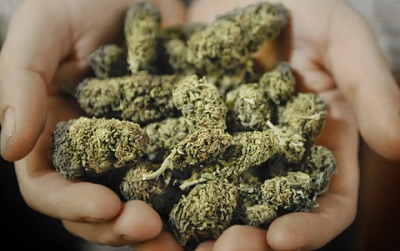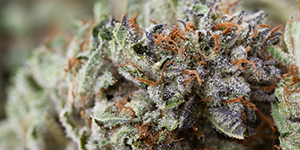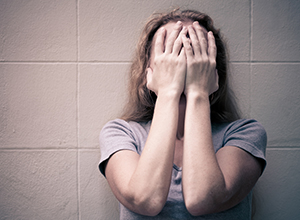- Marijuana Use and Brain Development
- Effects of Tetrahydrocannabinol (THC) in Marijuana
- Marijuana Abuse and The Risk of Psychosis
- Treatments
- Conclusion
- Sources
What is all the fuss about?
Marijuana is one of the most highly-used illicit substances in the U.S. today. While the movement towards decriminalization of marijuana possession is a great relief to those who believe in treatment rather than incarceration, the legalization of marijuana in many states sends out a message that it is quite harmless—but it's not.
Marijuana has a high addictive potential, a documented withdrawal syndrome, and the potential for long-term adverse effects.
- In a recent study of intake data from 483 adolescents referred to a clinic for evaluation of marijuana use:
- 47% met DSM-IV criteria for marijuana dependence (addiction).
- 32% for marijuana abuse (problem use).
It is important to understand from the outset that there a link between marijuana use and psychosis but a causal relationship has not been established. Research indicates that marijuana use may be implicated in:
- Worsening the symptoms of those with existing psychotic disorders.
- Precipitating first onset psychosis in those who may have a predisposition to it, preceding the development of schizophrenia.
Marijuana Use and Brain Development
![]() Adolescence – a critical period for ongoing neurocognitive development – is the primary focus of research on marijuana’s influence on the brain.
Adolescence – a critical period for ongoing neurocognitive development – is the primary focus of research on marijuana’s influence on the brain.
Although marijuana use has been associated with the risk of developing functional psychosis, it is important to remember that this depends on a number of variables, including genetic risk.
Research on frequent adolescent marijuana users has revealed a number of abnormalities in various brain areas associated with inhibitory control, cognitive processing, and complex working memory.
![]()
Effects of Tetrahydrocannabinol (THC) in Marijuana

There appears to be a relationship between the level of THC in marijuana and impairments in psychomotor function, cognition and memory. THC levels in average samples of marijuana have increased greatly.
1960’s street marijuana samples tested, on average, with 1-2% Delta-9 THC.
A more recent report on samples being pre-tested in Colorado averaged 19% THC, with some samples containing 30% THC.
Heightened THC potency is also associated with a more severe dependence to marijuana.
Marijuana Abuse and The Risk of Psychosis
While not fully understood, the interplay between the brain and environment in the development of psychosis is important to consider.
Genetic Factors
Genetic vulnerabilities have a significant effect on how these elements react with each other.
Environmental Factors
Environmental influences play a major role in the development of psychosis as well.
Stress

There is growing evidence to suggest that stress is influenced by the endocannabinoid system (the areas of the brain where marijuana goes to work).
It is not conclusive, but it is important to further explore the relationship between stress, the endocannabinoid system, psychosis, and marijuana, given that the endocannabinoid system is a powerful buffer against many of the effects of stress.
Trauma
Coping-oriented, long-term use of marijuana in those who’ve experienced trauma is well-documented in the research literature.
- In one study, individuals with a history of non-consensual sexual experiences as well as marijuana use were more than seven times more likely to be diagnosed with psychosis than those without such experiences.
- The association here and in other sources shows that trauma can influence the relationship between marijuana abuse and stress, although this concept warrants further research.
Other Mental Illness
A number of studies have found some correlation between early-onset, regular use of marijuana and depression. Additional findings suggest that heavy marijuana use may increase depressive symptoms among some users.
Adolescents with substance use disorders – including marijuana use disorder – tend to have higher rates of co-occurring mental disorders, and are more likely to report a history of trauma and/or physical/sexual abuse than their non-using peers.
While these associated psychiatric conditions often predate the marijuana use, marijuana use serves to greatly exacerbate their effects.
![]()
Treatments
Drug therapies show mixed results.
- For marijuana withdrawal the only drugs to show any promise were oral tetrahydrocannabinol (Dronabinol) and mirtazapine (Remeron).
- The cannabinoid receptor antagonist rimonabant (Acomplia) and buspirone (Buspar) have shown some progress for the treatment of marijuana dependence.
- Rimonabant has been withdrawn from the market because of adverse problems associated with its use.
Conclusion
There is a growing body of research to suggest a link between marijuana use and other psychiatric conditions—including psychotic disorders.
In the face of legalization of this chemical in many states, it is incumbent upon us to educate ourselves about the harms associated with marijuana use, develop new therapies, and help deepen the values of community and belonging for those suffering from mental health problems.
Sources
- Benyamina, A., et al. (2008). Pharmacotherapy and Psychotherapy in Marijuana Withdrawal and Dependence. Expert Rev Neurother 8(3):479-91.
- Colizzi, M., et al. (2015). Interaction Between Functional Genetic Variation of DRD-2 and Marijuana Use on Risk of Psychosis. Schizophrenia Bulletin 41(5):1171-1182.
- Deas, D. (2006). Adolescent Substance Use and Psychiatric Comorbidities.
- Degenhardt, L., et al. (2003). Exploring the Association Between Marijuana Use and Depression. Addiction 98(11):1493-504.
- Di Forti, M. et al. (2015). Proportion of Patients in South London with First-Episode Psychosis Attributed to Use of High-Potency Marijuana: A Case-Control Study. The Lancet Psychiatry 2:233-38
- Geller, B. (2015). Adolescent Marijuana Use and Schizophrenia Genes: How Do They Connect? NEJM Journal Watch: Psychiatry. 21(10):74.
- Houston, J.E., et al. (2011). Marijuana Use and Psychosis: Revisiting the Role of Childhood Trauma. Psychol Med 41(11):2339-48.
- Inaba, D. (2015). A Scientific Perspective on Marijuana on the Eve of Its Legalization. Advances in Addiction and Recovery. [Alexandria, VA: NAADAC]
- Ketcherside, A., and Filby, F. (2015). Mediating Processes Between Stress and Problematic Marijuana Use. Addictive Behaviors 45:113-118.
- Kevorkian, S., et al. (2015). Associations among Trauma, Post-Traumatic Stress Disorder, Marijuana Use, and Marijuana Use Disorder in a Nationally-Represented Epidemiological Sample. Psychology of Addictive Behaviors 29(3):633-638.
- Mizrahi, R. (2015). Social Stress and Psychosis Risk: Common Neurochemical Substrates. Neuropsychopharmacology. In Print.
- Morena, M., et al. (2015). Neurobiological Reactions Between Stress and the Endocannabinoid System. Neuropsychopharmacology. Ahead of Print.
- Patel, R., et al. (2015). Marijuana Use and Treatment Resistance in First Episode Psychosis: A Natural Language Processing Study. The Lancet 385: Suppl 1.
- Schollenbarger, S.P., et al. (2015). Impact of Marijuana Use on Prefrontal and Parietal Cortex Gyrification and Surface Area in Adolescents and Emerging Adults. Developmental Cognitive Neuroscience . In Press/Corrected Proof.
- Stanger, C., et al. (2015). Clinic and Home-Based Contingency Management Plus Parent Training for Adolescent Marijuana Use Disorders. Journal of the American Academy of Child & Adolescent Psychiatry 54(6):445-453.
- Zaman, T., et al. (2015). Co-Occurrence of Substance-Related and Other Mental Health Disorders Among Adolescent Marijuana Users. J Addict Med 9(4): 317-321.